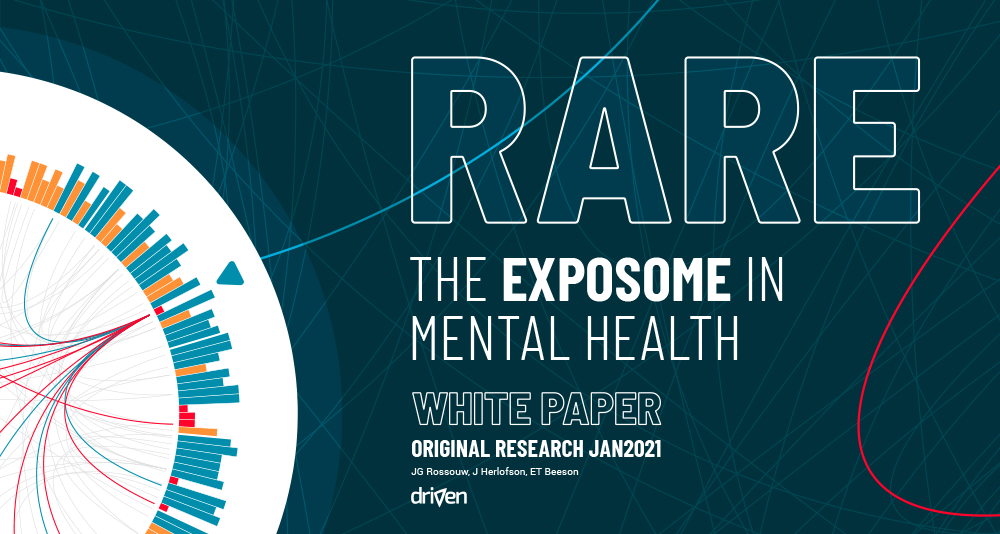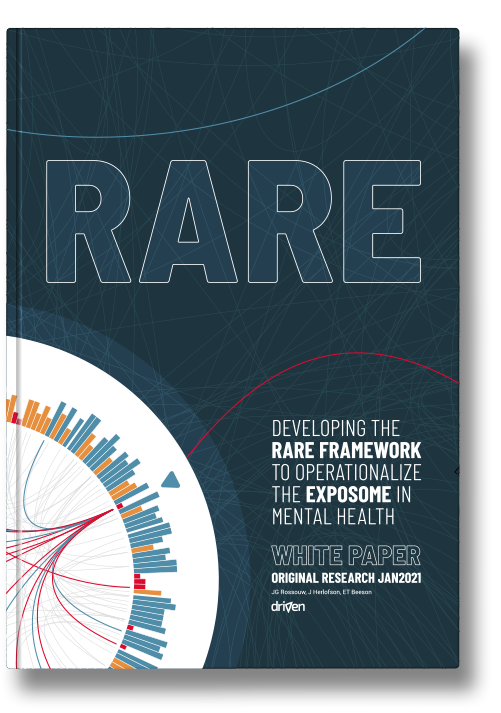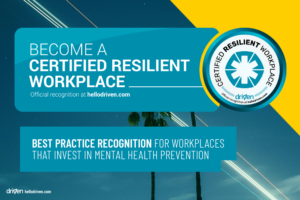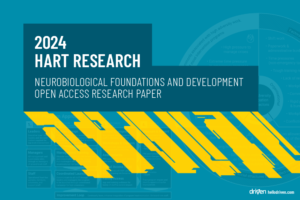‘Holistic care’ is increasingly an ideal for various forms of therapy and coaching. However, models developed for this purpose still fell short of living up to the holistic concept. The exposome presents us with a concept that lives up to the ideal of being truly holistic.
What is the exposome?
While the genome is the complete map of DNA, the exposome represents all human exposures. Essentially, everything that isn’t the genome. This is an important addition, especially as we learn how few diseases are actually directly caused by genetic variations and are instead related to our exposures – all the stuff covered in the exposome. Also, what we’re exposed to can alter our genes through epigenetics, further highlighting the importance of a new challenge, which is mapping the exposome.
...the exposome for mental health – a framework to achieve truly holistic care.
A while back I explored the origins of the exposome, along with it’s current focus mainly on physical health and biomarkers. This is where we talked about expanding the exposome for mental health – a framework to achieve truly holistic care.
The RARE Framework
Over the last few years we’ve been working on exactly this, culminating in the development of the Relational Adaptive Resilience Exposome (RARE) framework. The goal of RARE is in line with the exposome in general – to understand more accurately the contributors and protectors against disease, here with a particular focus on mental health.
RARE as a more comprehensive data framework leads to some interesting outcomes, particularly as we advance our machine learning prediction algorithms:
Assessment efficiency – We are already seeing the value of mapping together previously disconnected psychometric assessments. For example, using our machine learning algorithms, the PR6 assessment is showing predictive power in personality trait prediction and mental health risk. This could lead much more efficient assessments that make it far easier and faster to decide where to focus attention
Long-term prediction – Longitudinal assessments combined with these algorithms can then highlight individual mental health risks much earlier, enabling timely and accurate preventative intervention
Uncovering unexpected connections – What if there are factors that lead to loneliness, depression, PTSD, and so on that we never found simply because the data was never connected before? What if there are flow-on effects that we’ve never really noticed? RARE can help identify these and speed up the advancement of mental health research
The advances we can achieve with this framework are massive. Through this we can make a tangible impact on mental health at a global scale. And if there was ever a time that it is needed, it is now.
RARE Factor
While the exposome involves great complexity, we also want to introduce simplicity.
This is where we’ve developed the RARE Factor – a simple scoring system that reflects individual investment in mental and physical health. It’s an easy number that tracks an individual’s ongoing investment in their own wellbeing.
Think of it like physical fitness. Early on when you start working out, you make quick gains. Over time as you approach top fitness you reach a natural peak. If you stop working out, your fitness level goes down. And also, you can’t achieve top fitness by simply working out a ton on one day!
...it’s all about ongoing daily investment in yourself to stay in shape mentally.
The RARE Factor works the same way – it’s all about ongoing daily investment in yourself to stay in shape mentally. As we introduce this into the Driven Resilience App we’ll explore this in more detail. Similarly, we’re expanding the content within Driven itself according to the RARE framework. This includes adding more insightful assessments and training content accessible through the platform.
The Research
Today we further our development of the framework by publishing our research paper, titled: Developing the RARE Framework to Operationalize the Exposome in Mental Health.
The full paper is free to access below. Have a read!
ABSTRACT
Despite an increasing global focus on the personal and economic costs of mental health and wellness, there is a lack of innovation that presents a paradigm shift in both preventative and curative treatment. A more comprehensive understanding of mediating factors of both illness and health can assist in applying effective preventative care sooner. With the genome as a complete map of DNA, the exposome as a counterpart is a new concept as the complete map of human exposures. However, exposomic research thus far focuses primarily on chemical and environmental exposures. We propose the development of the Relational Adaptive Resilience Exposome (RARE) framework as a ‘mental health exposome’. RARE provides conceptual benefits for individual empowerment in preventative and reactive care, along with advantages to clinical care through faster and more accurate diagnoses, comprehensive care, treatment monitoring, and ongoing maintenance. We discuss the development of the framework, its value, the RARE Factor as a simplified quantification of self-care, and future directions.
What next?
We’re now working on bringing more of the RARE functionality to our clients, including:
Coaches and psychologists having access to new tools, including expanding the predictive capacity of the PR6 assessment & reporting
Individuals getting more accurate personal insight and relevant content, combined with the RARE Factor to track progress
Organisations accessing more insightful aggregated data to better prioritise investment for greatest positive impact on staff
New research on predictive algorithms (we’ll be publishing a paper on this in the near future!)
Sign up to our mailing list to hear all about the progress!



